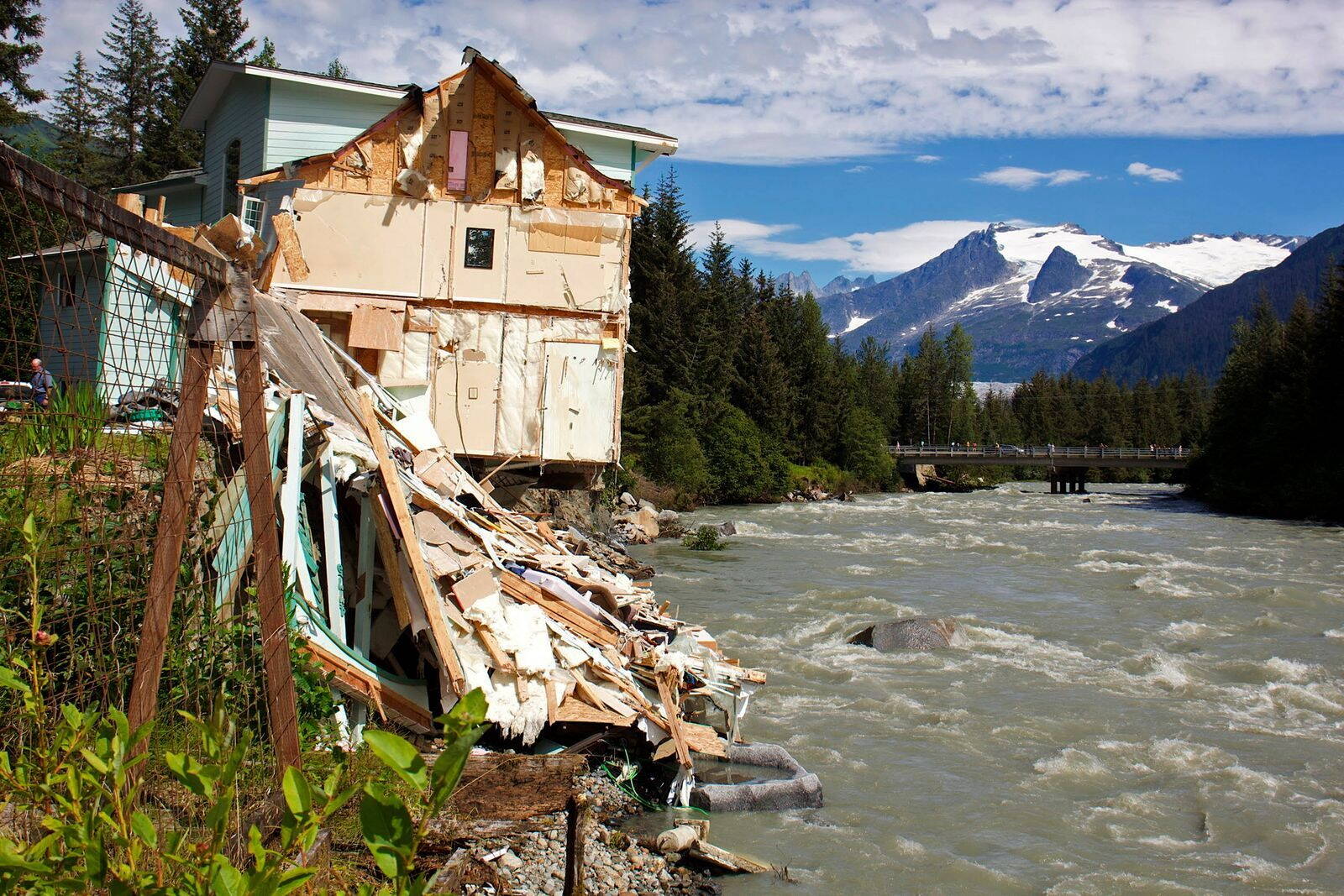An executive order blocking enforcement of climate change and other environmental policies by states and municipalities was signed late Tuesday by President Donald Trump, expanding on multiple previous orders that among other things mandate the elimination of all federal regulations that inhibit maximum utilization of Alaska’s natural resources.
The order, titled “Protecting American Energy From State Overreach,” directs the U.S. attorney general to identify within 60 days all state and local laws “burdening the identification, development, siting, production, or use of domestic energy resources that are or may be unconstitutional, preempted by Federal law, or otherwise unenforceable.”
“The Attorney General shall prioritize the identification of any such State laws purporting to address ‘climate change’ or involving ‘environmental, social, and governance’ initiatives, ‘environmental justice,’ carbon or ‘greenhouse gas’ emissions, and funds to collect carbon penalties or carbon taxes,” the order states.
The order could have vast statewide and local implications in Alaska, which according to the U.S. Department of Agriculture is warming two to three times faster than the planetary average — and the rate is much higher in the northernmost portions of the state. A report published in 2022 found Juneau is getting 20 inches more rain annually than a century ago, snowfall could decrease by nearly 60% during the end of this century and the Mendenhall Glacier will likely mostly vanish from view of the visitor center by 2050.
The City and Borough of Juneau has set a goal of reaching 80% renewable energy in the sectors of transportation and space heating by 2045. Among other climate-related statewide and municipal policies that have been especially prominent recently are fisheries and wildlife management, safeguarding communities against increasingly severe natural disasters such as floods and landslides, and seeking to limit environmental impacts of development ranging from urban infrastructure to mining.
Among the specific policies targeted by Trump’s order are state laws on carbon taxes and fees — with Alaska enacting carbon management and offset laws into law in 2023 and 2024 — cap-and-trade systems for carbon emission, and lawsuits and fines directed at fossil fuel companies for their climate change impacts.
A coalition of Democratic governors representing 22 states with net-zero carbon emissions policy goals declared in a prepared statement they “will not be deterred” by Trump’s order.
“The federal government cannot unilaterally strip states’ independent constitutional authority,” New York Gov. Kathy Hochul and New Mexico Gov. Michelle Lujan Grisham, co-chair of the U.S. Climate Alliance, asserted in the statement.
Trump, on his first day in office, signed an Alaska-specific order intended to vastly free oil drilling, mining, timber harvesting and other resource extraction from federal regulation. However, policy experts have said it likely will be years before projects affected by the order actually begin, due to legal challenges to the order and other factors.
He also has taken a variety of other actions targeting climate change policies, including eliminating federal programs, employees and websites whose purposes are related to the issue. The Trump administration also on Tuesday announced it is pulling nearly $4 million funding from Princeton University due to climate-related programs that go “against” the National Oceanic and Atmospheric Administration’s (NOAA) current program objectives — one of many recent actions targeting universities and other educational institutions.
• Contact Mark Sabbatini at mark.sabbatini@juneauempire.com or (907) 957-2306.

